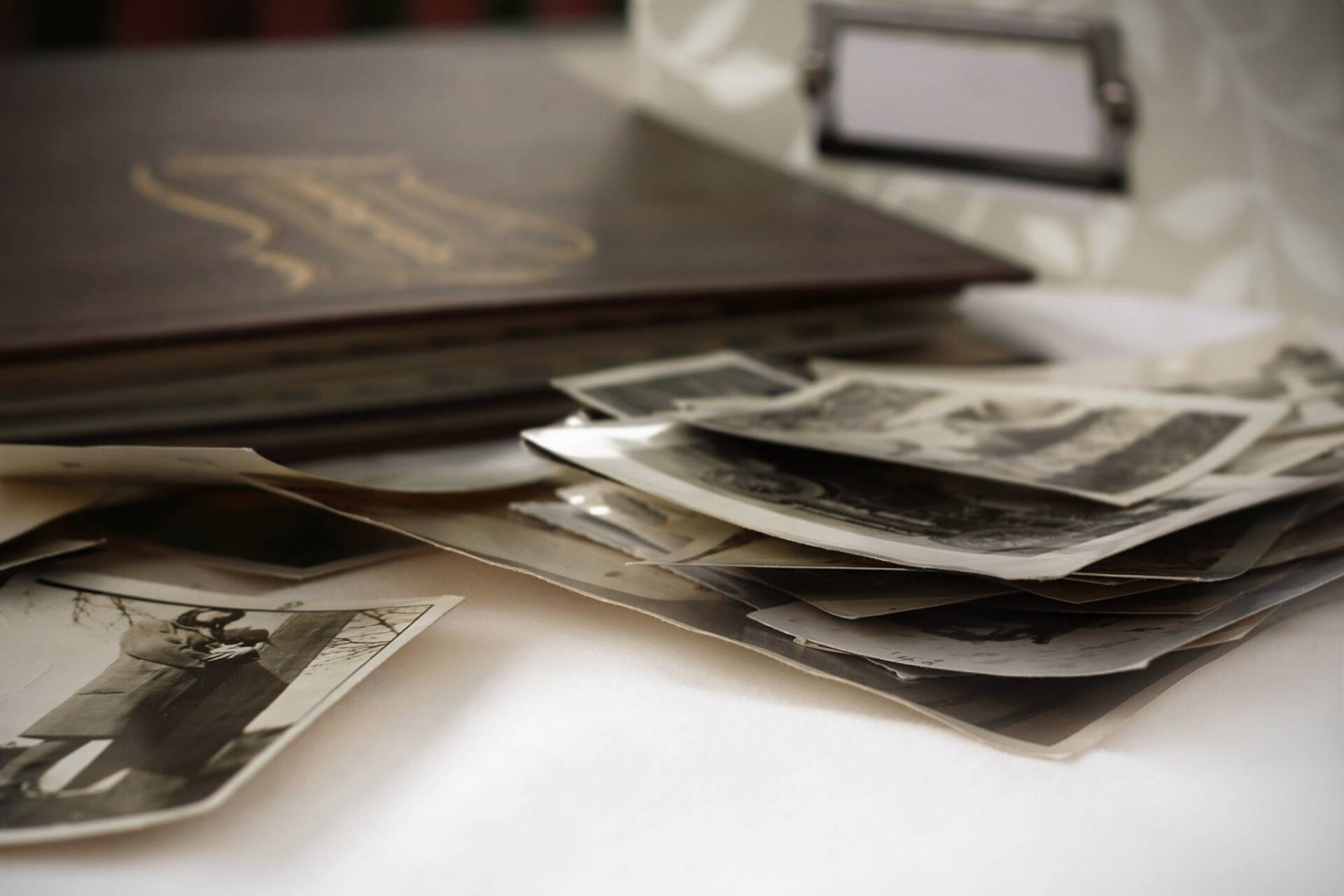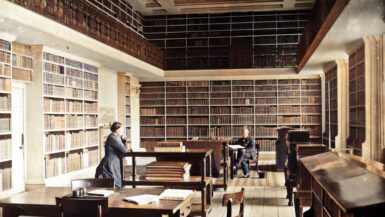Discover your Irish heritage with this comprehensive beginner’s guide, including step-by-step instructions, genealogy resources, and essential tips for tracing your Irish ancestry.
Ireland is a land steeped in history and rich with culture, making it a fascinating place to explore your ancestral roots. With millions of people around the world claiming Irish descent, tracing your Irish ancestry has become a popular endeavor for many. In this beginner’s guide to tracing your Irish ancestry, we’ll provide you with essential information, easy-to-understand steps, and helpful resources to help you unravel your Celtic heritage.
Getting Started with Irish Genealogy
Embarking on your Irish genealogy journey starts with gathering as much information as possible from your family members. Interview relatives, collect family stories, and review old documents and photographs to create a basic family tree. Make note of any specific Irish surnames, places, or events that might help you in your research.
Once you’ve gathered this information, it’s time to start exploring online resources, such as genealogy websites, databases, and forums. Keep a research log and organize your findings in a consistent and systematic manner to make it easier to track your progress and identify potential gaps or inconsistencies.
Key Irish Genealogy Records
When researching your Irish ancestry, there are several key records you’ll want to consult:
- Civil registration records (births, marriages, and deaths)
- Parish and church records (baptisms, marriages, and burials)
- Census records and substitutes
- Land and property records
- Immigration and emigration records
- Military records
- Newspapers and local histories
Each of these record types can provide valuable insights into your Irish ancestors’ lives, helping you piece together your family’s unique story.
Online Resources for Irish Ancestry Research
There are numerous online resources available to help you with your Irish genealogy research. Some of the most popular and useful websites include:
- IrishGenealogy.ie: A free website run by the Irish government, featuring civil registration records, church records, and an extensive help section for beginners.
- RootsIreland.ie: A subscription-based website offering access to millions of Irish genealogy records, including parish records, census records, and gravestone inscriptions.
- Ancestry.com: A popular subscription-based website with a vast collection of Irish records, as well as access to worldwide genealogy resources.
- Findmypast.com: Another subscription-based site with a strong focus on Irish and British records, including exclusive access to certain Irish record collections.
- National Archives of Ireland: The official archive for the Republic of Ireland, offering free access to a range of digitized records, including census returns, wills, and military records.
Irish Surnames and Their Origins
Understanding the origins and meanings of Irish surnames can provide valuable clues in your ancestry research. Irish surnames are generally divided into two categories: Gaelic and Anglo-Norman. Gaelic surnames, such as O’Connor or MacCarthy, often begin with a prefix like “O” (meaning “descendant of”) or “Mac” (meaning “son of”), followed by the ancestor’s name. Anglo-Norman surnames, such as Burke or Fitzgerald, were introduced to Ireland during the Norman invasion in the 12th century and are often based on geographical locations or occupations.
When researching your Irish surnames, consider possible spelling variations, as they may have evolved or been anglicized over time. Websites like the Irish Surname Registry and the Surname Database can help you learn more about the history and origins of your family names.
Irish Parish and Church Records
Parish and church records are among the most valuable resources for Irish genealogy research, as they often predate civil registration records. These records typically include baptisms, marriages, and burials, and can be found across various religious denominations, including Catholic, Church of Ireland (Anglican), and Presbyterian.
To access Irish parish and church records, you can start by searching online databases such as IrishGenealogy.ie, RootsIreland.ie, and Ancestry.com. If you’re unable to find your ancestors in these online collections, you may need to consult microfilm copies or visit local archives and libraries in Ireland to access original records.
Civil Registration Records in Ireland
Civil registration of births, marriages, and deaths began in Ireland in 1864 for all residents and in 1845 for non-Catholic marriages. These records are crucial for building your Irish family tree and can be accessed online through IrishGenealogy.ie, Ancestry.com, and Findmypast.com.
When searching for civil registration records, remember to consider spelling variations and potential transcription errors. Additionally, be prepared to search a range of years, as the exact date of an event may not be known or may have been inaccurately recorded.
Land and Property Records
Land and property records can help you discover where your Irish ancestors lived, their economic status, and other family members. Some key land and property records for Irish genealogy research include:
- Griffith’s Valuation: A comprehensive property survey conducted between 1847 and 1864, listing occupiers, landlords, and property values. Available online through AskAboutIreland.ie and Ancestry.com.
- Tithe Applotment Books: Records of a land tax levied on occupiers of agricultural land between 1823 and 1837. Available online through the National Archives of Ireland and Ancestry.com.
- Registry of Deeds: A collection of land transactions, wills, and marriage settlements dating back to 1708. Available online through FamilySearch.org and in person at the Registry of Deeds in Dublin.
Census Records and Substitutes
Census records provide a snapshot of your ancestors’ lives and can reveal valuable information about their families, occupations, and residences. Unfortunately, many Irish census records from the 19th century have been destroyed, but some key surviving census records and substitutes include:
- 1901 and 1911 Census: The earliest complete census records for Ireland, available online for free through the National Archives of Ireland.
- Census Substitutes: Alternative sources for census-like information, such as tax records, electoral registers, and Griffith’s Valuation.
Immigration and Emigration Records
Millions of Irish people emigrated to other countries, particularly during the Great Famine of the 1840s. To trace your Irish ancestors’ migration, you can consult passenger lists, naturalization records, and other immigration documents available through websites like Ancestry.com, Findmypast.com, and the National Archives of Ireland.
Local Irish Archives and Libraries
Local archives and libraries in Ireland can be treasure troves of genealogical information,
including parish registers, newspapers, local histories, and other unique resources. Some key archives and libraries to consider visiting include:
- The National Library of Ireland: Located in Dublin, the National Library houses an extensive collection of books, manuscripts, and maps, as well as the largest collection of Catholic parish registers.
- The Public Record Office of Northern Ireland (PRONI): The official archive for Northern Ireland, featuring a wide range of records, including wills, census returns, and church records.
- County and city libraries and archives: Many local libraries and archives hold unique collections of records specific to their area, such as local newspapers, graveyard inscriptions, and historical documents.
Genealogy Organizations and Societies in Ireland
Joining Irish genealogy organizations and societies can provide you with valuable support, resources, and networking opportunities. Some notable organizations include:
- The Irish Genealogical Research Society: Aims to promote and encourage the study of Irish genealogy through research, publications, and events.
- The Irish Family History Society: Offers access to exclusive resources, workshops, and lectures for members.
- County-based genealogy societies: Many Irish counties have their own genealogy societies, which can provide local expertise and resources specific to their region.
Tips and Tricks for Successful Irish Ancestry Research
As you embark on your journey to trace your Irish ancestry, keep these helpful tips in mind:
- Be patient and persistent: Genealogy research can be time-consuming and challenging, so be prepared for setbacks and dead ends. Keep at it, and eventually, you’ll make progress.
- Be flexible with spelling and dates: Spelling variations and inaccuracies are common in historical records, so be open to searching for alternative spellings and date ranges.
- Network with other researchers: Connecting with other genealogists, both online and in person, can provide valuable insights, support, and collaboration opportunities.
- Visit Ireland: If possible, plan a trip to Ireland to visit ancestral locations, consult local archives, and experience Irish culture firsthand.
- Continuously learn and refine your skills: As you gain experience in genealogy research, you’ll develop new techniques and strategies to help you uncover your Irish heritage.
By following this beginner’s guide to tracing your Irish ancestry, you’ll be well on your way to uncovering your Celtic roots and understanding the unique stories of your ancestors. Embrace the journey, and enjoy the discoveries that await you in the rich tapestry of Irish history.






always have wanted to visit Ireland. now that I’m 60 and retired on disability,it doesn’t look like I ever will. I still dream about it though. from what I know, a lot of my family came from Ireland.